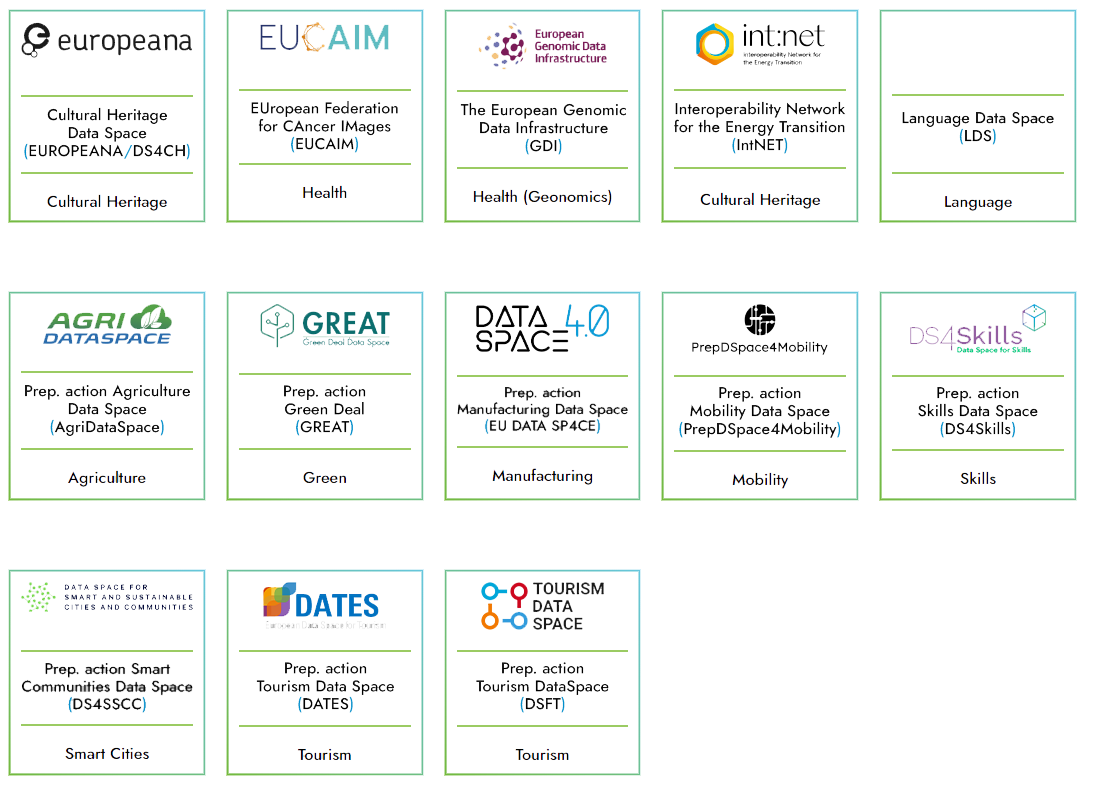 \
&
Contact us
\
&
Contact us
 \
&
Contact us
\
&
Contact us
Published on | 2 years ago
ProgrammesA data space is a decentralized infrastructure for trustworthy data sharing and exchange in data ecosystems based on commonly agreed principles. Data spaces have been proposed by the EU as a way to support data sharing, while respecting the rules that safeguard European values (from A European Strategy for data, EC 2020).
A data space is all about easy sharing of data between organisations that are part of an ecosystem. Because of pre-made agreements that pertain to the technical, legal and business aspects of data sharing.
If you want more details and nuances, refer to the Design Principles for Data Spaces position paper or to this primer on data spaces.
Each data space has it's own way of working, so it is a bit difficult to describe a process in general terms. All of them focus on the exchange of data across organisations, by removing the constraints of proprietary, non-transparent, non-interoperable technologies that do not provide the necessary level of trust.
You can become a pure data provider or a pure data consumer, but most likely your role will be containing both of those elements. Or you can add value (insights, links, clustering, ...) to existing data and thereby claiming your place in the ecosystem.
The best way forward is that you contact the teams of the data spaces that interest you, and take it from there.
There does not really exist an list of all the data spaces that are out there, but the Data Spaces Support Centre did build the graphical overview below of their community of practise members. It shouldn't take you long to identify the ones that are related to your domains.
Additionally we of course need to mention the Belgian Data Spaces Alliance, that unites Agoria, imec, KULeuven, Digitaal Vlaanderen, Paradigm.brussels, l'Agence du Numérique, Athumi and het Datanutsbedrijf. One of their main goals is to stimulate local data ecosystems to join existing Data Spaces Projects or to initiate local Data Space projects in line with EU standards and initiatives.
And finally, also the International Data Spaces Association could be one of your entry points.

Pay attention the graph is not complete, e.g. Gaia-X is missing.
We offer news and event updates, covering all domains and topics of Horizon Europe, Digital Europe & EDF (and occasionally, for ongoing projects, Horizon 2020).
Stay informed about what matters to you.
By signing up, you can opt in for e-mail notifications and get access to
a personalised dashboard that groups all news updates and event announcements in your domain(s).
Only for stakeholders located in Flanders
Avia-GIS is a Belgian innovative SME established in 2001. They have built research and public authority trust over the past 19 years and developed a unique, disruptive software suite - VECMAP® - that supports society to overcome one of its important health threats, the spreading of Pests of Public Health importance.
With the help of a Horizon 2020 SME Instrument Phase 2 project, they will be able to add Integrated Pest Management functionalities and go to the market. With the grant, that was an essential component of their second investment round, Avia-GIS aims at raising its revenue from the current 2 M€ to 14.2 M€ in 2024, and increase the headcount from 15 to 58.